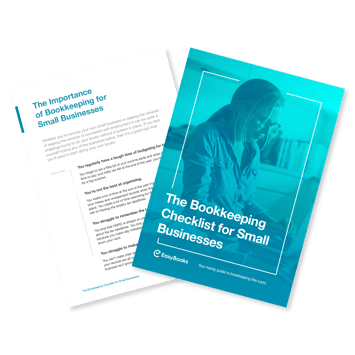If you’re responsible for a small business, then you’re faced with two choices when it comes to bookkeeping - pay someone else to do it or learn how yourself. Learning is the more cost-effective option but it can be tricky to get started. Lucky for you we’ve put together a handy list of tips.
From free HMRC workshops to claiming for expenses, here are five tips on how to do your own bookkeeping.
Learn How to Do The Bookkeeping for Your Small Business
- Open a Business Bank Account
- Keep Track of Your Expenses
- Record Everything
- Back to School
- Create a Payroll System
1. Open a Business Bank Account
Step one is to open a business banking account that’s completely separate from any of your own personal finances. Managing your business and personal transactions from the same account is an absolute nightmare and something we definitely wouldn’t recommend.
When it comes to paying bills and tracking expenses, you don’t want to have to scroll through pages and pages to find the information you need. All of your business incomings and outgoings will be easy to organise.
Create a savings account too as you’ll need to make sure you’re putting enough money away to pay for big tax bills when they arrive. Keep track of exactly when these payments are due and save accordingly.
2. Keep Track of Your Expenses
It’s crucial that you know what you can and can’t claim for when it comes to expenses. To deduct them from your tax bills, you’ll need to be able to prove to HMRC that they were strictly related to your business.
To avoid any problems with these deductions, you must keep track of your expenses throughout the year. Detailed records are your friend and can make the process a whole lot easier.
Here are some of the expenses your small business can claim for:
- Office supplies - including business stationery, printer ink and postage fees.
- Business premises - you can claim for rent, maintenance, repair, insurance, utilities and security fees. If you run your business from home, then you can only claim for ‘simplified expenses’.
- Travel - including insurance, fuel, hire charges, breakdown cover and servicing. You’re also able to include any costs from travelling by train, bus, plane or taxi and hotel rooms as well.
- Clothing - if you have to wear protective clothing when working then you can claim for it.
3. Record Everything
You must retain every invoice, receipt, bill and bank statement and they need to be organised and stored effectively. This sounds like a lot of work but it’s nothing compared to filing tax returns without having everything you need.
From the moment you set up your business, it’s essential that you keep records of everything. Without the right information, you’re more likely to submit incorrect tax returns and be given penalties from HMRC.
If you’re still doing paper-based bookkeeping, then don’t misplace any important documents. This is why we’re such advocates for digital bookkeeping, as you’ll never lose another invoice or receipt again.
4. Back to School
We’d never assume your age, but it might have been a while since you were last inside a classroom. To make sure you’re bookkeeping like a pro, it’s time to go back to school. HMRC host workshops and webinars to get you up to speed.
From the basics to the more difficult stuff, there are educational videos and blogs available that will cut through the complicated jargon and help you to understand exactly what you need to do.
It isn’t just HMRC that can help. A quick Google or YouTube search and you’ll find thousands of experts offering advice and guidance. If you’re struggling with something, make sure to do personal research. It may take time and patience but it’s completely free and can provide the knowledge to make better business decisions.
5. Create a Payroll System
Your business might have started in your front room but as it grows and expands, you might have to hire some help. Whether it’s someone working full-time or a freelancer that’s offering specific services, you’ll need to set up a payroll system.
If you’ll be paying them via an hourly rate, then make sure the time they log their time correctly. Decide on a payroll schedule and take all necessary tax regulations into account. Otherwise, you could end up facing legal issues if you’re over- or underpaying someone.
Bookkeeping Isn’t Easy, But EasyBooks Is
Managing your business’ books shouldn’t be keeping you up at night. With the right knowledge and tools, you can make sure you don’t have to face any surprise bills. Whether you’ve been managing for years or this is your first business, download our free checklist now.
The checklist will ensure you’ve got everything organised and you’re using the right software. Get your free copy now using the link below.







